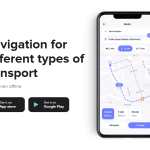Consider — when you plug that device into a port in a rental car or airport, what if someone on the other end uses software to harvest every name, email, and cell number in your contact list. Because they’re physically connected, it’s possible that your device doesn’t even have to ask if you’d like to share contacts. What can you do? Use a force field, of sorts, to protect your device. Here’s one idea from SyncStop. It prevents accidental (or intentional) data exchange any time your device is plugged into someone else’s computer or a public charging station.
Why haven’t we thought of these before? : ) It works with any mobile device — iOS, Android, Apple or PC — by blocking just the data (communication) pins, but not the power. By doing so, it not only defends your device from data theft but also protects it from malware! (Unfortunately, as this Brigada goes to press, Syncstop happens to be out of stock.) However, a similar product from USB Defender is available immediately, if you need one now:
https://www.amazon.com/USB-Defender-Transfers-Smartphone-Guaranteed/dp/B01MXRQ4TZ
(Thanks Daniel!)













Why hasn’t someone thought of this before? As it happens, these little guys have been around in some form for about as long as communication has been mixed with power in the same cable. They are also available for power over Ethernet (PoE), FireWire, etc. They may generically be referred to as “cable data isolators” or “cable condoms”. They are highly effective but if you lack the skills to make your own only buy from a source that you would trust with your most sensitive digital secrets.